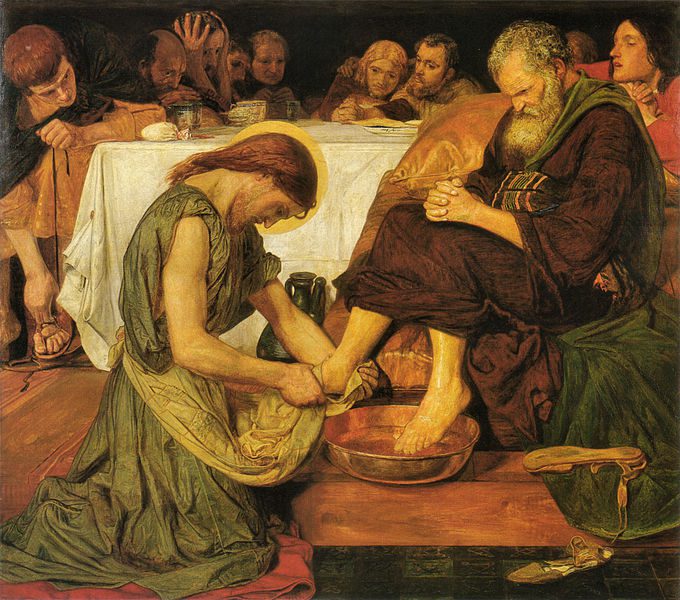
(Wikimedia Commons public domain)
Luke 22:3-6
Compare John 6:70-71; 13:2, 27
Judas was called to the apostleship. In the end, though, he betrayed Jesus, and his name has become virtually synonymous, in many languages, with traitor.
Some suggest that he was motivated by simple greed. And there are surely passages in the gospels to support greed as at least a contributing factor.
Others believe that he was a Zealot, a revolutionary interested in expelling the Roman occupation force from Palestine who grew impatient with Jesus’ failure to act as, Judas felt, the Messiah should. One suggested etymology for Iscariot is “man of the Sicarii,” referring to the knife-wielding Jewish assassins who sought to carry out anti-Roman terrorist attacks. (Does that sound contemporary enough for you?) On this reading, because Jesus didn’t live up to his political agenda, Judas sought to force the Savior’s hand by putting him into a situation where he would be forced to use his already-demonstrated miraculous power. But then, to Judas’s shock, he didn’t. Which would explain Judas’s sudden suicide when he realized that, in fact, Jesus was going to die.
Who knows?
Judas seems, however, to be the model “son of perdition” — which suggests that his motives weren’t merely laudable but misguided.
However, we should be very careful, in any case, that we not follow in Judas’s path. It’s very easy to point the accusatory finger at him, but we should be more worried, two thousand years later, about ourselves.

Compare John 13:1
Matthew’s account suggests that Jesus had simply made prior arrangements for a venue in which to celebrate Passover. The Markan and Lukan narratives, by contrast, seem to feature just a hint of something perhaps supernatural.
But maybe not. Perhaps this was just a rather odd pre-arranged sign, and even something a bit secretive. That would have been a reasonable precaution in view of the murderous designs of the Jewish authorities in the city. Jesus didn’t want to be arrested before he had celebrated the Passover with his disciples (and instituted the ordinance of the sacrament).

Wikimedia Commons Public Domain
Compare Matthew 10:24, 40; 23:6-12; Mark 10:41-45; 12:39; Luke 6:40; 10:16; 12:37; 22:3, 24-28
One of the official titles of the Pope — it goes all the way back to Pope St. Gregory I (r. AD 590-604) — is servus servorum Dei (“servant of the servants of God”).
I’m not a Catholic, but I like the title. I think it beautifully expresses the ideal of John 13:1-20.
On the modern temple ordinance of the washing of feet, see here.
Posted from London, England











